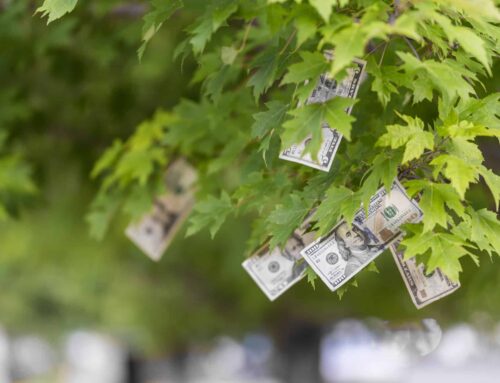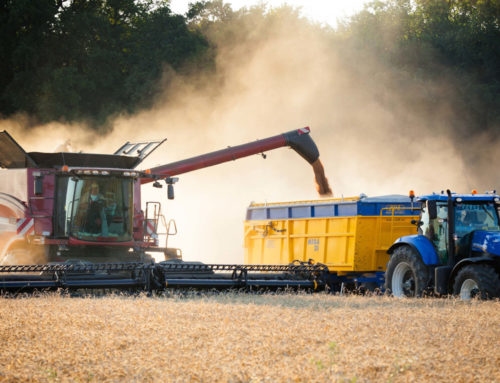At Taxpayers for Common Sense we work with everyone. Unless they don’t want to work with us, which is becoming clear as key lawmakers begin work on the legislation with the biggest impact on the American diet, the federal farm bill.
To say it’s been a closed door process is an understatement. Even staff of lawmakers on the agriculture committees haven’t seen legislation and don’t know when it will be unveiled.
The House Agriculture Committee Chairman has said that when he gives the word they’ll bypass normal procedure—where each subcommittee marks up their portion of the bill—and head straight to the floor within two weeks. The Senate Agriculture Committee leadership is claiming it will push a bill, again something no one has seen, through the Senate in two days.
48 hours to consider and vote on opaque trillion dollar legislation—a pace of $20.8 billion an hour, folks!—that includes nearly $200 billion in subsidies for agricultural businesses, affects everyone’s dinner table, and directly impacts 5.5 percent of the world’s biggest economy.
Sadly, this is not unprecedented. In 2011 Ag committee leadership worked behind closed doors, again excluding members of their own committee, in an attempt to attach a trillion dollar farm bill, which they claimed would trim a few billion dollars from current policy, onto the Super Committee’s deficit reduction package. They failed, but that backroom bill became the basis of the 2014 farm bill that became law.
This is why a couple of weeks ago we moderated a National Farm Bill Summit among nearly 25 groups whose interests and constituencies aren’t fairly represented by the agriculture committees.
But unlike the Ag committees, we know the farm bill is too important to let partisan or ideological differences get in the way of an open, honest conversation about the costs and benefits of current farm policy.
This is how we make Washington work. For years we’ve successfully brought together motley crews of people wanting reform. Our Green Scissors coalition has both libertarian and lefty environmentalists agreeing on cuts that will benefit taxpayers and the environment.
We’re part of the SmarterSafer Coalition which brings together diverse partners who want to work on environmentally responsible, fiscally sound approaches to natural disasters. We frequently sit at the table with libertarians, peace advocates, and budget hawks for accountable defense spending. We’re once again bringing this effort to the farm bill.
Three years after enactment, conservation and nutrition programs are much cheaper than anticipated, while promised savings in programs subsidizing agricultural incomes are failing to materialize. Furthermore, Washington is picking winners and losers within agriculture, helping neither farmers nor consumers. For example, just 15 percent of the largest farms capture almost 85 percent of the total payments.
But because the biggest subsidy programs tie support to specific crops, since passage of the 2014 farm bill just six crops (corn, wheat, soybeans, cotton, rice, and peanuts) accumulated 94 percent of payments. Growers of vegetables, tree nuts, fruits and livestock, which together account for about 70 percent of agricultural production value, receive virtually nothing.
For example, this year was the largest Gulf of Mexico dead-zone on record and the Lake Erie algae bloom has reared its head once again. Agriculture is the number-one cause of this costly pollution.
Meanwhile land prices continue to be very high, placing a barrier before new and beginning farmers. And rural communities continue to lag the overall economy in performance.
Instead they have spent the year focusing on how to extract more money for favored producers such as cotton and dairy. Committee members and lobbyists are upset that the subsidy programs created for these two commodities are less costly than originally anticipated, even though this is due to both segments of agriculture being projected to experience double-digit increases in income from the market.
And the committees are taking advantage of much greater than anticipated savings in conservation and nutrition programs in an attempt to deflect focus from other commodity subsidy programs that are $18 billion more expensive than originally promised.
More money doesn’t automatically mean better strategy. (Hello defense spending!) Passing a deficit busting tax cut when what we need is true tax reform, isn’t going to cut it. Using disasters to avoid common sense flood insurance reforms that will better protect property and save lives, is wrong.
Taxpayers for Common Sense has led before and we’re leading again. And we are happy to be the example everyone follows. In a country that spans a continent and has citizens in outposts as far flung as the Pacific Islands, the Bering Strait, and the Caribbean, we are naturally a motley crew.
But we all have one thing in common – no matter who or where we are on the political spectrum, no one wants to see their tax dollars wasted. We need Congress to be more like the rest of us and just make government work.










